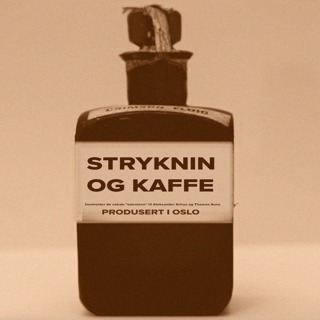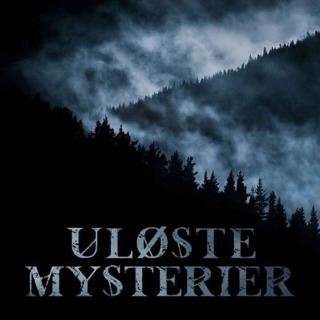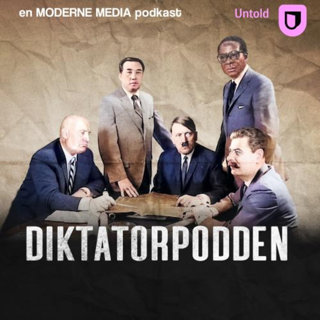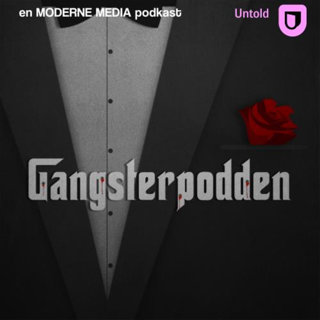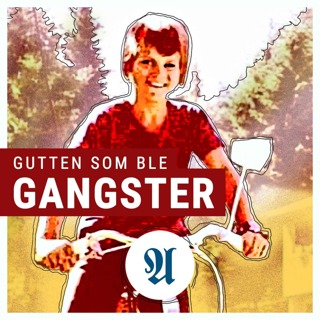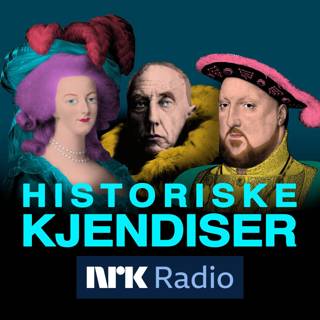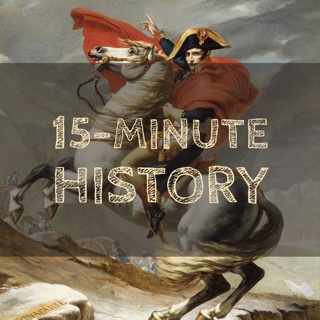
What to Watch | A Discussion on History in Movies, Part III
Join us as we discuss the good and bad movies from the episode, What to Watch | History in Movies, Part III.
23 Jan 202345min

What to Watch | History in Movies, Part III
Back by popular demand - mostly Jon’s - is our “What to Watch” in historical movies series. This time, Joe got to review the good ones, while Jon suffered through the bad ones. The team also recorded this one together, so expect some words of affirmation, and maybe, disgust.
16 Jan 202323min

St. Nicholas | A Discussion (w/ two special guests)
Join us as we discuss (with two very special guests) St. Nicolas, who he was in history, and how we became the jolly Saint we see depicted everywhere throughout the holiday season. Let us know if you would like our two special guests to return!
24 Des 202218min

St. Nicholas | A Historical Perspective
As the holidays approach and young children start writing their letters (or sending emails, tweets, and Tik Toks) to Santa, we here at 15-Minute History thought it would be fun to look back at the man who inspired generations to give gifts to friends and loved ones each Christmas. Parents, don't worry if you're listening to this with the kids--there won't be any spoilers. Join us as we teach you about St. Nicolas, who he was in history, and how we became the jolly Saint we see depicted everywhere throughout the holiday season.
19 Des 20228min

The History of Social Media | A Discussion
Join us as we discuss the history of social media, the reason for its popularity, and some ways to use social to influence the word around us in a positive way.
12 Des 202222min

The History of Social Media | REDUX
In this REDUX episode from our first season, we show you the history of social media from its inception to today, the reason for its popularity, and its possible impact on our society today. The first attempt at what would later be defined as “social media” took place in the fall of 1969. The United States military was conducting tests using the first proto-internet, called ARPANET, which was used to create connections between computer stations. This pre-internet attempt spawned the famous communication – or lack of communication – which occurred in October of 1969 from the campus of UCLA. An attempt was made to send the word Login between two computers on campus, but a computer crash resulted in the letters LO being received. This first miscommunication did not stop the developers from continuing their work and successfully sending the message a month later. This achievement, both the failed communication and the successful one, would have a lasting effect on social media, whether those developers intended it or not.
5 Des 202218min

Fredrick Douglas | A Discussion
Join us as we discuss Fredrick Douglas, his early life, his escape to freedom, and his profound effect on ending slavery in the United States.
21 Nov 202241min

Fredrick Douglas | Pinnacle of Freedom
"I once knew a little boy whose mother and father died when he was six years old. He was a slave and had no one to care for him. He slept on a dirt floor in a hovel, and in cold weather would crawl into a meal bag head foremost and leave his feet in the ashes to keep them warm. Often he would roast an ear of corn and eat it to satisfy his hunger, and many times has he crawled under the barn or stable and secured eggs, which he would roast in the fire and eat. That boy did not wear pants like you do, but a tow linen shirt. Schools were unknown to him, and he learned to spell from an old Webster's spelling-book and to read and write from posters on cellar and barn doors, while boys and men would help him. He would then preach and speak, and soon became well known. He became Presidential Elector, United States Marshal, United States Recorder, United States diplomat, and accumulated some wealth. He wore broadcloth and didn't have to divide crumbs with the dogs under the table. That boy was Frederick Douglas." Join us as we teach you about Fredrick Douglas, his early life, his escape to freedom, and his profound effect on ending slavery in the United States.
14 Nov 202215min











